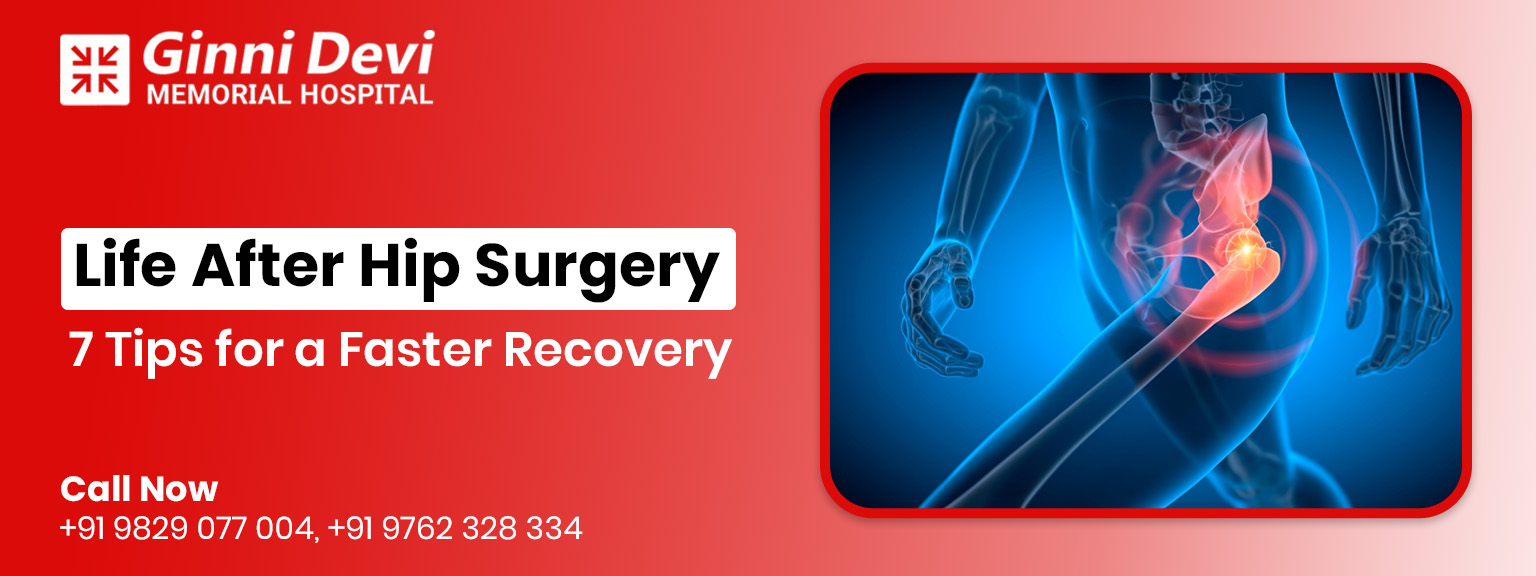There’s a period after hip surgery that’s a little thrilling and a little scary. You have made the courageous decision, confronted the operating room, and now the path changes — from surgery to strength and pain to progress. But healing isn’t automatic. It’s the right combination of patience, work, and a little persuasion.
Whether you’re preparing for surgery, already on the other side of it, or want to recover optimally from a future surgery, learning to heal more wisely can make all the difference. Recovery is not solely dependent on time, but also on the way you manage your time.
“Healing doesn’t have a clock. It follows your care.”
Below are 7 smart and strong tips to recover from hip surgery, where you get a fast recovery after hip replacement so that you can feel confident and live life again—faster, safer, and stronger.
Hip Surgery Recovery Tips
Start Slow, But Start Early
Those first steps you take after surgery may feel wobbly, but that’s the beginning of your return. Early movement is essential. Your doctor or physiotherapist will probably try to get you sitting, standing, or even walking with assistance within a day or two. Don’t rush. But don’t delay either.
In a leading hospital like Ginni Devi Memorial Hospital, which is known as the best Hip replacement hospital in Jaipur. In this hospital, early mobilization is professionally guided, and patients are made to ambulate with safe support and confidence.
Establishing a safe atmosphere at home:
A successful recovery doesn’t stop at the hospital. It continues at home.
Here’s what helps:
- Remove loose rugs or anything you can trip over.
- Install grab bars in the bathroom.
- Keep essentials within easy reach.
- Use a raised toilet seat or cushioned chairs.
- Sleep on a firm, low bed for easier access.
Eat to heal and fuel your recovery.
Your body has just undergone a series of major events. It needs the proper fuel now to rebuild tissue, to make bone strong, and to fight infection. Add these to your plate:
- Protein sources
- Iron and calcium
- Water and light soups for hydration
- Vitamin C- and D-containing foods.
Sleep Right and Sit Smart
Sleep is your deepest healer. But you need to sleep and sit in ways that keep your new hip safe.
- Sleep on your back with a pillow between your knees.
- Don’t sleep on the operated side.
- Don’t cross your legs.
- Sit on high, firm chairs—not deep sofas or low stools.
Wound care
- Keep your wound clean and dry.
- Take a water-sponge bath or use a waterproof cover while bathing to protect the incision.
- Look for early signs of infection.
- Do Not Scratch or Rub the Area
- Let the Wound Breathe at the Right Time
- Wash Your Hands Before Touching the Wound.
Follow Your Physiotherapy Plan
Your physiotherapy is not optional as it is your lifeline to full recovery. Each exercise is designed to restore strength, flexibility, and joint function. Like:
- Start slow, but stay consistent, such as gentle exercise on the bed and leg movement.
- Do your home exercises daily, such as leg lifts, ankle pumps, gentle stretches, and walking.
- Use a Walker or Stick Properly
- Some discomfort is normal, but sharp pain, clicking, or pulling means you need to stop and rest.
- Avoid crossing your legs, twisting your hips, or sitting in deep chairs for the first few weeks.
Stick to Follow-Up Appointments
It’s crucial to attend all of your doctor’s follow-up visits after your hip surgery. Even if you feel well and are not in pain, these appointments benefit your doctor:
- See how your new hip is progressing internally and externally.
- Remove stitches or staples safely.
- No silent problems like infections or joint problems
- Change your medication or therapy, if necessary.
- Advise when to begin normal activities or when to discontinue the use of walking aids.
Missing out on these visits can allow minor issues to slip through the cracks and extend your recovery. Doctors at leading Orthopedic hospitals in Jaipur, like Ginni Devi Memorial Hospital, always motivate patients to attend all follow-ups because it helps to get a fast recovery after hip replacement.
Quick Bonus Hip Surgery Recovery Tips:
- Avoid smoking and alcohol.
- Use ice therapy.
- Wear comfortable clothes.
- Use assistive devices properly.
- Keep a positive mindset and stay patient.
Conclusion
This whole blog concludes that healing is in your hands only because you are the only one who controls the speed of recovery. By following hip surgery recovery tips thoroughly, you can return as soon as you can and enjoy daily activities like driving, walking, working, or even dancing.




